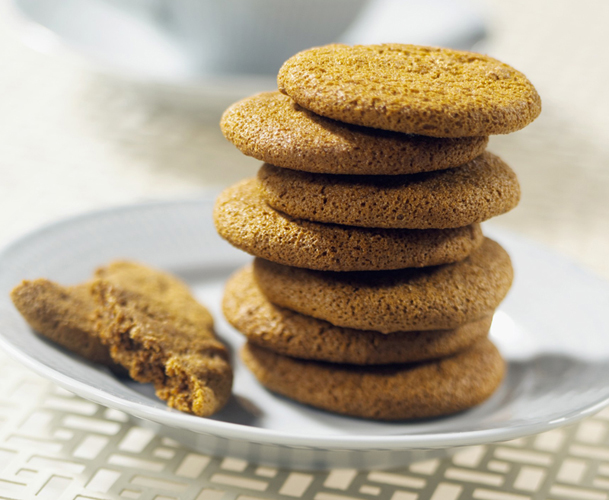Coping with morning sickness
To alleviate feelings of
nausea and sickness in pregnancy, try eating little and often, and sip
water continually during the day. Some women find ginger helps, so you
could try nibbling ginger cookies, perhaps before you get out of bed.
Acupressure bands worn on the wrists, available from pharmacies, are
also thought to relieve the symptoms.
Sipping peppermint tea can help relieve feelings of nausea.

Snacking on ginger cookies can reduce nausea.

Fatigue Coping with fatigue in pregnancy
One of the
most cited complaints in pregnancy, particularly in the first
trimester, is extreme fatigue as your body deals with its extra
workload. Accepting this and adapting your routine accordingly can help
you cope.
Slow down and take a break, or even a catnap, whenever possible.
Eat small, healthy snacks throughout the day and drink plenty of fluids to maintain energy levels.
Try to get nine hours of sleep each night.
Perform regular, gentle exercise to relieve stress and improve your fitness.
Sleeplessness
You are often very
sleepy at the beginning and end of pregnancy, and toward the end of
pregnancy you may find it increasingly difficult to sleep restfully in
the night since your belly makes it hard to find a comfortable position,
pressure on your bladder causes you to get up frequently to use the
toilet, and your baby may not share the same sleeping pattern as you and
wakes you frequently with his kicking. Coupled with the fact that your
body is working extremely hard, a poor night's sleep adds to your
general levels of fatigue. If possible, try to compensate for broken
nighttime sleep by catnapping in the day, or find time to sit down and
put your feet up.
Don't feel guilty about grabbing a quick nap after lunch or
falling asleep on the sofa early, since this helps you to cope with
disrupted sleep during the night. Learning to take a rest when possible
is also good practice for after the birth!

Varicose veins How can I avoid them?
Self-help measures to avoid the risk of varicose veins include:
Wear support hosiery—this is one of the best ways to avoid varicose veins.
Avoid crossing the legs at the knees.
Do regular ankle and foot exercises to reduce swelling and cramps.
Avoid standing for long periods.
Raise your legs when sitting down.
Get up to take regular walks if you have to sit for long periods.
Avoid high-heeled shoes, which reduce the work done by the calf muscles, to maintain blood flow in the legs.
NOTE
Try to think of your pregnancy as a season that will pass. If you feel overwhelmed, visualize your baby in your arms
NOTE
When pregnancy symptoms get you down, get a massage, or ask a close friend to give you a relaxing shoulder rub